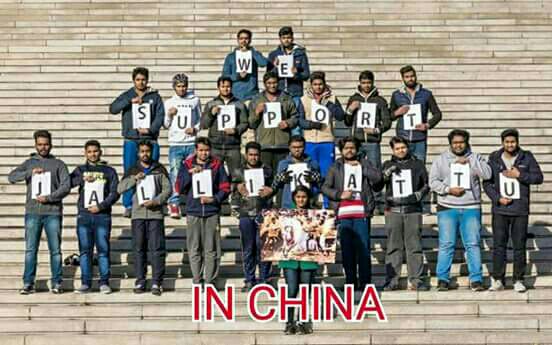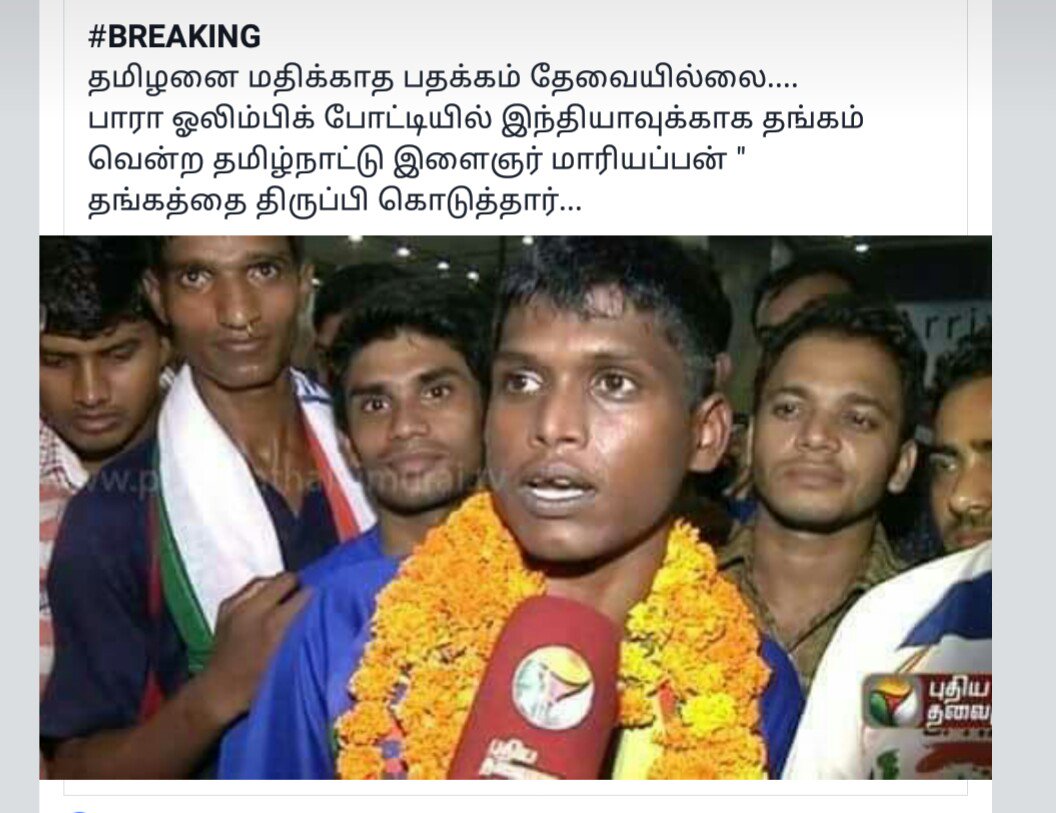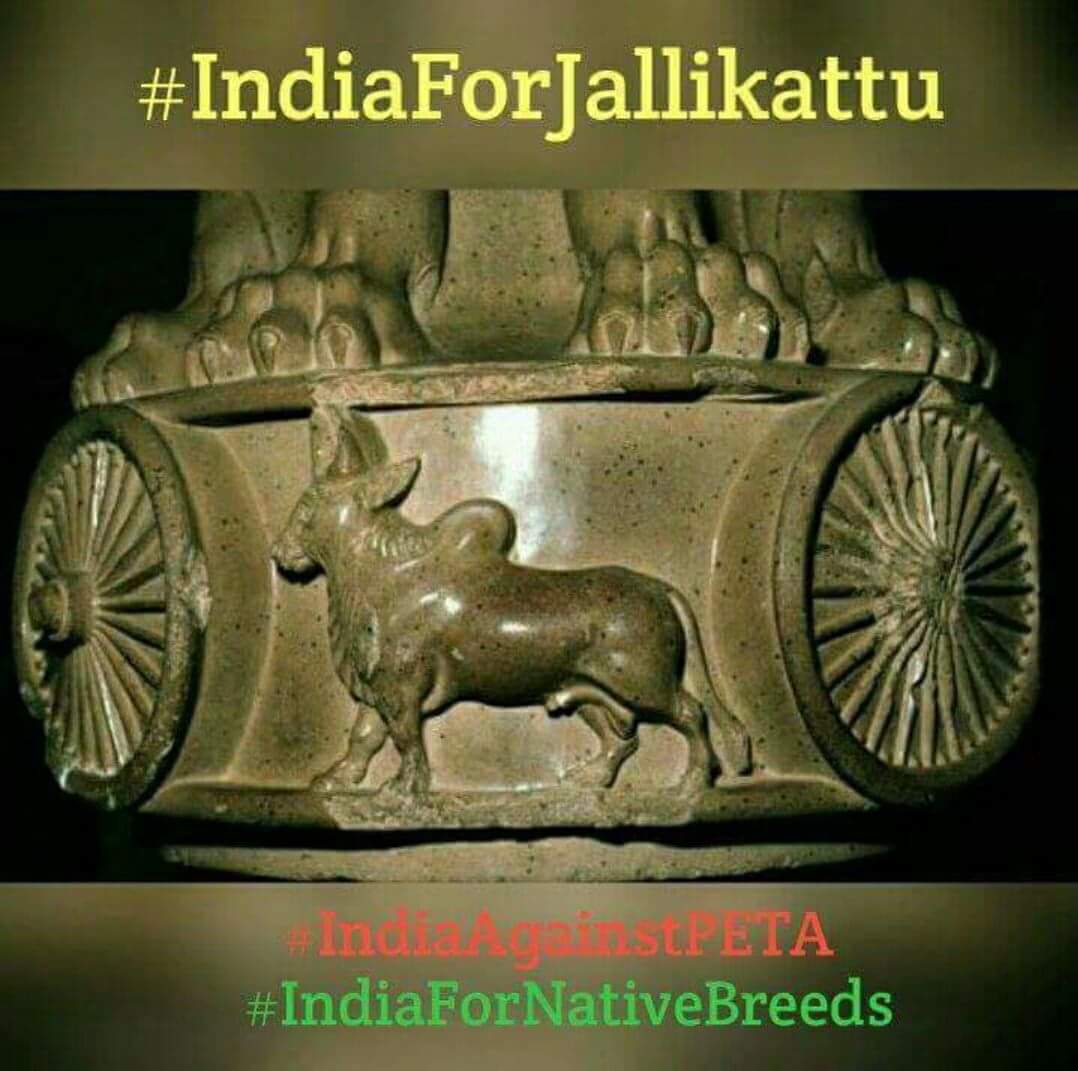https://www.wionews.com/south-asia/jallikattu-stir-spreads-to-sri-lanka-uk-and-australia-11484
LOL
Tomorrow World second longest beach going to make history
http://www.hindustantimes.com/autho...tu-protests/story-0RHvlvHRmzVj6B2Ah8u2JJ.html
“The protests are politically motivated”, “So many issues are there in Tamil Nadu, why have people only gathered for this one?”, and, “Only crazy, primitive people can support a sport that harms an animal”. These are some of the common arguments that dismiss the current protests in many parts of Tamil Nadu — unfortunately, these are easy ways to dismiss something that’s not fully comprehended.
Many of the protesters in Marina Beach in Tamil Nadu’s capital Chennai have gathered to express solidarity to the people who’ve been arrested in different parts of the state in relation to supporting/holding Jallikattu — a bull taming sport banned by the Supreme Court. Their demands are that the ban of Jallikattu be lifted, that People for the Ethical Treatment of Animals (PETA) be banned, and that chief minister O Panneerselvam meet them in person.
Interestingly the sentiments behind the protests have moved beyond just the ban on Jallikattu, and have now become the manifestation of the many “wrongs” — perceived and real — meted out to the “Tamil people” by the central government (“Delhi”).
Read |
Jallikattu warriors: Meet the hi-tech brains behind Chennai protests
In the process, there has been a convenient portrayal of the Jallikattu-loving Tamilian as what Edward Said would have called “The Other”. The description of the protesters in an English TV newsroom debate as “barbaric people” confirms this. There is also a reverse to this, where many, especially the protesters, see “Delhi” — the Centre, politicians and other groups — as the oppressor.
Read |
Jallikattu: After Kamal Haasan, now Rajinikanth bats for the sport
Not a politically motivated protest
A significant feature of the current protests is that it is not spearheaded by a political outfit. It is motivated by some sort of affront to tradition. Unconfirmed reports from media persons covering the protests and social media conversations suggest that many political leaders were shooed away from the venue in Marina Beach — some reports even suggesting that water packets were hurled at a senior leader from the Opposition.
“The fact that no political party, especially the AIADMK and DMK, are allowed (at the venue) is a sign that it is apolitical. I salute the youth who’ve come out like this. This is a spontaneous outburst,” PMK leader and former Union minister Anbumani Ramadoss told Hindustan Times.
Read |
Kamal Haasan to GV Prakash: Why Tamil actors support Jallikattu
The role social media platforms like WhatsApp and Facebook, among others, played in the protests gaining momentum cannot be overlooked. “Even Tamilians outside India have extended support to the cause (to lift the ban on Jallikattu). The protests were initially centred in cities and towns, but soon spread across the state because of social media,” a senior journalist from a Tamil newspaper said.
A feeling of being targeted
To dismiss the protests as a non-issue is to add insult to injury, and strengthens the predominant feeling in the state, especially among the youth, that Tamil Nadu has been at the receiving end of “Delhi’s” indifference.
Read |
Jallikattu events held in Tamil Nadu, Supreme Court ban defied
“There has been an appalling sense of indifference in Delhi to the issues of a state that sends almost 40 MPs and is one of the major industrial engines of the country. There’s a feeling that we’ve been given the short end of the stick,” R Kannan, a UN official currently posted in Iraq and author of Anna, said.
“For 50 years Tamil Nadu has been treated like beggars. The government at the state and Centre have neglected the sentiments of the Tamil people,” Ramadoss said.
Read |
No excuses for Jallikattu: Argument that it’s Tamil culture doesn’t hold up
R Azhagarasan, a professor at the University of Madras, agrees. “What we’re seeing now is an accumulated hurt because of the Delhi’s continuous contempt towards the state. Be it the Tamil fishermen’s issue, the Tamil Eelam issue, the Cauvery issue and now Jallikattu, in none of these the outcome has been in favour of the state. The ban on Jallikattu, in that sense, adds to the recurring rhetoric that Tamils are targeted.”
It’s not Jallikattu vs PETA
The protest is not about cruelty towards animals, and thus, centring the debate on animal rights is to water down the issue. The protests are about the disruption of Tamil culture, of “Delhi” stopping a centuries-old tradition, and, most importantly, of being wronged. Many see PETA as a vehicle “Delhi” has used to further oppress Tamil Nadu.
Read |
In Tamil Nadu, the stars align in favour of MK Stalin
However, Kannan feels that this ban has breathed life into the rural sport. “PETA has done a huge service to a sport (Jallikattu) that would have otherwise perhaps faded away,” he told HT.
The not-so-unanimous protest
The Jallikattu protests have been able to unite political parties in the state on the demand to revoke the ban. Beyond politics, film celebrities, spiritual leaders, sportspersons, intellectuals, etc, have expressed support.
However, Dalit groups have traditionally opposed the sport because of the caste restrictions it imposes. Even such voices of dissent support to the protests. “Dalits have always opposed Jallikattu, but this protest has now become a movement demanding Tamil pride,” an activist-politician would did not want to be identified said.
Read |
Jallikattu ban: Thousands protest at Chennai’s Marina Beach, CM Panneerselvam to meet PM Modi
“Our society does not react in this manner to many greater social issues because many of them are taken up by parties...they have become political issues. This one is an emotional one,” writer and activist Stalin Rajangam said.
Without a clearly defined leadership or direction the longevity of this protest could be short — and it would be unfortunate if this widespread display of anger is not addressed.
“After a very long time the question of identity has been stoked. It has touched a raw nerve,” Kannan said.
And it’s not a good sign to leave such a deep sense of hurt unattended — it’s bad for the state, it’s bad for the nation, and it’s bad for the health of our democracy.
People are Stopping running Train LOL
Delhi galli LOL
kochi IIT
Dublin Ireland

















